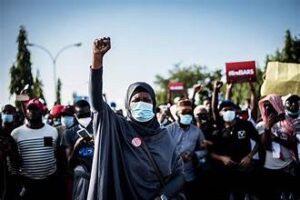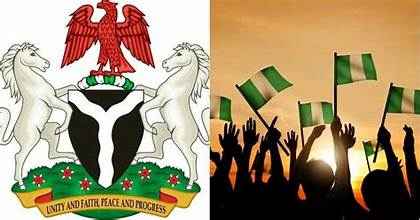The Human Rights Writers Association of Nigeria (HURIWA) has fiercely criticized what it deems as harsh and punitive bail conditions imposed on ten protesters involved in the #EndBadGovernance movement by the Federal High Court in Abuja.
Expressing profound discontent, the association argued that the judicial system increasingly resembles colonial rule, utilizing its authority not to safeguard citizens’ rights but to suppress and criminalize peaceful demonstrations.
According to reports, the case involving the ten Nigerians accused of treason has ignited widespread anger nationwide, particularly due to the severe bail requirements established by Justice Emeka Nwite.
Each defendant was granted bail contingent upon a N10 million fee, with an equal amount required from a surety who must reside in Abuja and own property there. Furthermore, these sureties were obligated to submit property documentation to the court and provide an affidavit proving their financial capability.
HURIWA condemned these stipulations as unjust and oppressive, suggesting they reflect a judiciary increasingly beholden to the executive branch of government.

In a statement released by HURIWA, signed by National Coordinator Comrade Emmanuel Onwubiko, the organization compared the Federal High Court’s actions to the repressive tactics employed by colonial authorities to stifle Nigerian voices before independence.
“The behaviour of the courts is reminiscent of colonial legacies, acting as instruments of oppression rather than champions of justice and fundamental rights. How can a judicial body in a democratic society criminalize peaceful protests and enforce such intolerable bail conditions on young Nigerians asserting their constitutional rights?” the statement questioned.
HURIWA highlighted that most of the individuals facing prosecution are unemployed youths who took to the streets to advocate for good governance, accountability, and transparency—principles enshrined in the nation’s constitution.
“These young individuals, many of whom are without jobs, were merely exercising their democratic right to protest against poor governance. Yet, instead of being recognized as patriots striving for a better Nigeria, they are treated as criminals, rounded up, and now face bail demands of N10 million each,” lamented HURIWA.
The organization further criticized the bail conditions as a covert method to ensure that the protesters remain incarcerated.
“By imposing such exorbitant requirements, the court effectively denies them bail. Where would unemployed youths find N10 million? These terms indicate the judiciary’s lack of intent to release these activists,” HURIWA asserted.
According to HURIWA, the court’s ruling not only undermines democratic principles but also emboldens the executive branch to further repress peaceful protests.




